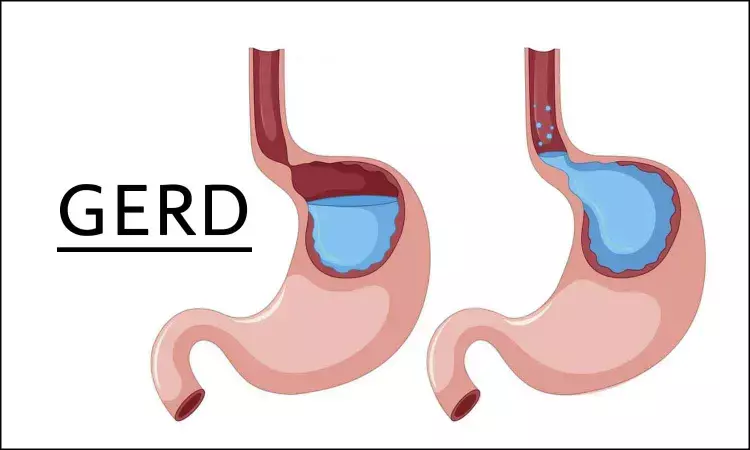- Home
- Medical news & Guidelines
- Anesthesiology
- Cardiology and CTVS
- Critical Care
- Dentistry
- Dermatology
- Diabetes and Endocrinology
- ENT
- Gastroenterology
- Medicine
- Nephrology
- Neurology
- Obstretics-Gynaecology
- Oncology
- Ophthalmology
- Orthopaedics
- Pediatrics-Neonatology
- Psychiatry
- Pulmonology
- Radiology
- Surgery
- Urology
- Laboratory Medicine
- Diet
- Nursing
- Paramedical
- Physiotherapy
- Health news
- Fact Check
- Bone Health Fact Check
- Brain Health Fact Check
- Cancer Related Fact Check
- Child Care Fact Check
- Dental and oral health fact check
- Diabetes and metabolic health fact check
- Diet and Nutrition Fact Check
- Eye and ENT Care Fact Check
- Fitness fact check
- Gut health fact check
- Heart health fact check
- Kidney health fact check
- Medical education fact check
- Men's health fact check
- Respiratory fact check
- Skin and hair care fact check
- Vaccine and Immunization fact check
- Women's health fact check
- AYUSH
- State News
- Andaman and Nicobar Islands
- Andhra Pradesh
- Arunachal Pradesh
- Assam
- Bihar
- Chandigarh
- Chattisgarh
- Dadra and Nagar Haveli
- Daman and Diu
- Delhi
- Goa
- Gujarat
- Haryana
- Himachal Pradesh
- Jammu & Kashmir
- Jharkhand
- Karnataka
- Kerala
- Ladakh
- Lakshadweep
- Madhya Pradesh
- Maharashtra
- Manipur
- Meghalaya
- Mizoram
- Nagaland
- Odisha
- Puducherry
- Punjab
- Rajasthan
- Sikkim
- Tamil Nadu
- Telangana
- Tripura
- Uttar Pradesh
- Uttrakhand
- West Bengal
- Medical Education
- Industry
Investigational drug effective as adjunct to PPIs in refractory GERD

Approximately 20% of the adult U.S. population reports GERD-related symptoms, including heartburn and regurgitation each week and about seven per cent experience daily symptoms. Proton pump inhibitors are "mainstay" treatment for GERD but approximately 30% of patients continue to have symptoms.
Refractory gastroesophageal reflux disease (GERD) reduces the quality of life and creates a significant financial burden on the healthcare system. The researchers performed a trial to evaluate the efficacy and safety of new drug IW-3718, a bile acid sequestrant, as an adjunct to PPI therapy.
They found that the investigational drug that binds bile acids in the stomach can reduce the severity of heartburn symptoms in patients with treatment-resistant gastroesophageal reflux disease (GERD) when combined with a proton pump inhibitor (PPI.
The study has been published in the journal Gastroenterology.
"As a physician, it is very challenging to have nothing new to offer patients for whom standard treatments don't work," Vaezi said. "But the reality is many of our patients continue to struggle with frequent heartburn and regurgitation despite taking their PPIs.
"These data provide strong evidence that bile acid plays a key role in refractory GERD and that IW-3718 may have the potential to make a meaningful difference for patients," he added.
Vaezi is professor of Medicine and clinical director of the Division of Gastroenterology, Hepatology and Nutrition in the Department of Medicine, Vanderbilt University School of Medicine. PPIs such as Prilosec and Nexium reduce the production of stomach acid.
IW-3718, which was developed by Ironwood Pharmaceuticals, combines an established drug that binds bile acids in the stomach with a technology that controls the release of drugs in the gastrointestinal tract. Bile acids have been shown to injure the lining of the oesophagus as well as stomach and colon.
Fifty-two centres in the United States, including VUMC, participated in the randomized, double-blind study from March 2016 to April 2017. A total of 280 adult patients with refractory GERD were divided into four groups, one which received an inactive placebo and the other ascending doses of IW-3718 twice a day.
Heartburn symptoms were significantly reduced in the group receiving the highest dose, 1,500-milligrams twice daily, compared to the placebo group. Regurgitation symptoms also decreased. The drug was well tolerated. There were no drug-related serious adverse events.
"These results suggest that IW-3718 may provide a therapeutic option for refractory-GERD patients with continued symptoms despite once-daily PPI therapy," the researchers concluded.
For further reference log on to:
Dr Kamal Kant Kohli-MBBS, DTCD- a chest specialist with more than 30 years of practice and a flair for writing clinical articles, Dr Kamal Kant Kohli joined Medical Dialogues as a Chief Editor of Medical News. Besides writing articles, as an editor, he proofreads and verifies all the medical content published on Medical Dialogues including those coming from journals, studies,medical conferences,guidelines etc. Email: drkohli@medicaldialogues.in. Contact no. 011-43720751


